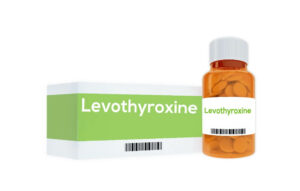Though this medication is just a synthetic thyroid hormone replacement, some people may abuse it to lose weight or increase energy. These are side effects of using the hormone, but they may be desirable and abused. This may be especially true for athletes. This is a problem because women or men who do not need altered hormone levels are taking a drug that does just that, which affects everything in the body. This hormone is also used as a performance enhancer because, unlike illicit substances, it doesn’t show up on drug tests, allowing an athlete to use increased amounts.
Because it is a hormone, quitting the abuse is not dangerous and can be very easy. The problem occurs when a person refuses to stop and causes health complications because of the altered hormones.
Levothyroxine Overdose
Though hormones are not typically dangerous, overuse and abuse can cause an overdose. A person who does not need hormone replacements but takes levothyroxine in excess can overdose, leading to symptoms that look like:
- Headache
- Cramps
- Tremors
- Anxiety
- Irritability
- Chest Pain
- Rapid Heart Rate
- Shortness of Breath
- Fever
An overdose may also be caused by the mixing of substances. Levothyroxine should not be taken if a person is also taking any type of amphetamine, Aspirin, blood thinners, antidepressants, anti-anxiety medications, heart disease medications, anti-seizure drugs, oral contraceptives, insulin, or ketamine. Taking any of these medications while also taking the hormone replacement can lead to negative interactions.
If a person is experiencing any of these complications, it is critical to receive immediate medical help. Calling 911 in this situation will save their life and prevent further health problems as a result of the overdose.

Levothyroxine Withdrawal
When a person goes through thyroid hormone withdrawal, they may experience some of the effects they were trying to diminish. This may include rapid weight gain, depression, low energy, and dry skin. Withdrawing from levothyroxine may also trigger diabetes through insulin resistance.
The best way to avoid withdrawal is to not take this hormone if you do not need to or to speak with your doctor about the possible risks, especially if you take other medications that it might interact with.
Finding Help
If a person is abusing levothyroxine, this could mean that there are underlying mental health conditions that need to be treated. This hormone is used to decrease weight and increase athletic performance when abused, but the abuse is caused by a much deeper need of sorts that can be treated with the help of a therapist.
Seeking help is the best way to ensure that further abuse does not continue, especially if the person tries a more potent, illicit substance to achieve the same effects. Finding a dual diagnosis treatment center that specializes in hormone therapies is key in ensuring you withdraw from this hormone successfully and are able to maintain sobriety long-term.
